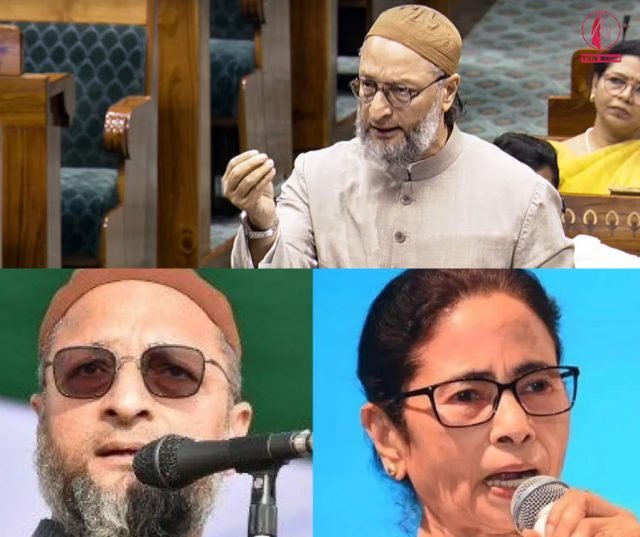AIMIM to Contest All Seats in 2026 West Bengal Elections, Accuses TMC of Betraying Muslims
- Posted on March 13, 2025
- News
- By Arijit Dutta
- 77 Views
AIMIM announced it will contest all seats in the 2026 West Bengal elections, citing a 40% Muslim population. Leader Imran Solanki accused TMC of neglecting minorities after elections. He also demanded transparency in Waqf Board accounts and criticized both TMC and BJP for failing to serve the Muslim community.

All India Majlis-e-Ittehad-ul-Muslimeen (AIMIM) has declared its intent to contest all seats in the upcoming 2026 West Bengal Assembly elections. The party claims that Muslims now constitute over 40% of the state's population and accused the ruling Trinamool Congress (TMC) of neglecting the community after securing their votes in elections.
During a press conference in Kolkata, AIMIM leader Imran Solanki criticized the Mamata Banerjee-led government for allegedly using Muslims for electoral gains but failing to address their concerns. He asserted that AIMIM is prepared to challenge both TMC and the Bharatiya Janata Party (BJP), accusing them of being "two sides of the same coin."
Solanki highlighted the party's growing presence in Bengal, citing voter support in districts like Malda and Murshidabad. He claimed that AIMIM secured 60,000 votes in Malda alone during the last panchayat elections. He further alleged that the TMC benefits financially from Waqf properties but does not reinvest these resources into the community’s welfare.
The AIMIM leader also called for transparency in the Waqf Board's accounts, demanding that the state government disclose how funds from Waqf properties are managed. He argued that a new Census would confirm the increasing Muslim population in Bengal and prove that TMC’s electoral success is largely due to their votes.
Also Read: Jadavpur University Student Arrested Over March 1 Campus Vandalism
Asaduddin Owaisi, the AIMIM chief, is expected to lead the party's expansion efforts in Bengal. The party aims to mobilize Muslim, Dalit, and tribal communities ahead of the elections, positioning itself as a strong alternative to existing political forces in the state.




